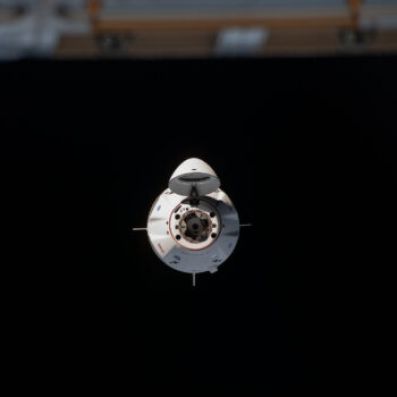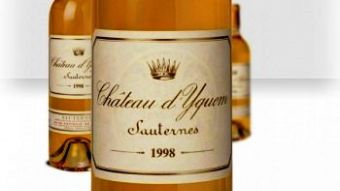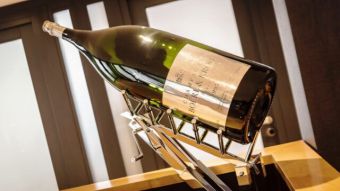French wine returns from space.
Twelve bottles of Bordeaux wine and 320 Merlot and Cabernet Sauvignon vine canes are among the cargo that is returning to Earth this week on board the SpaceX Dragon.
 The wine and vine material stored on the spacecraft left the International Space Station on 12 January and is expected to splash down west of Tampa off the Florida coast at about 8:27pm local time.
The wine and vine material stored on the spacecraft left the International Space Station on 12 January and is expected to splash down west of Tampa off the Florida coast at about 8:27pm local time.
Space Cargo Unlimited (SCU), the company behind the project, intends to open some of the bottles in February during a private event, after which months of chemical testing will take place.
The wines and canes have spent between 10 and 14 months in space, during which they were exposed to microgravity and higher radiation than on Earth.
SCU and partner institutions CNES (Centre National d’Etudes Scientifiques, Toulouse), ISVV (Institut des Sciences de la Vigne et du Vin, Bordeaux), and ESA (European Space Agency) will assess the biological mutations that have taken place in the canes exposed to these conditions, comparing them to samples that have remained on planet Earth.
One of the projects, called CANES, aims to assess how vines deal with stress and how they could adapt to changes brought about by climate change. It will also be used to explore new “defense strategies” in relation to diseases such as mildew, CSU said.
Both sets of canes were stored in the dark at the same humidity level (70%/80%) and temperature (between 0.5 to 8°C).
Meanwhile, the red wine, sourced from an undisclosed Bordeaux producer, has been stored in space for 12 months in metal cylinders to protect the bottles. The bottles will be compared to samples left on Earth that were stored at the same temperature (18°C). The team will assess whether increased levels of radiation and microgravity has influenced the chemical reactions that take place inside the bottle of wine as it ages.
Called CommuBioS, the project will study how microgravity affects sedimentation and bubble dispersion and will examine whether conditions have led to the development of secondary metabolites, colloids and polyphenols in the wine.
Both projects are part of a series of space-related wine experiments known as Mission WISE.
Information from The Drinks Business





